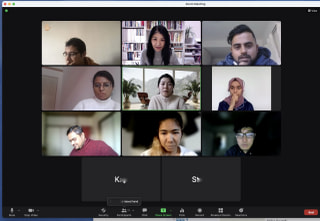Seminar

- セミナーでは、メンバー1人1人が、自分自身の興味に基づいてテーマを設定し、文献を読み、データを収集して、レポートを書く作業をしていきます。発見したことや自分の意見を発表し、仲間と議論をかわして、研究テーマを探究していきます。現在、2つのセミナーを担当しています。
- In my seminar, each student finds the topic according to his/her interest, reads literature on that topic, collects data if necessary, and writes a paper. We have a lot of discussion. It is a rich learning experience to get feedback from your peers as well as to present your ideas and opinions. I have two seminars now, one focusing on education, the other on childhood.
比較教育/Comparative Education
- このセミナーでは、日本・世界各国の教育を比較の視点から学んでいます。日本人研究者・世界の教育研究者の行ってきた、幼児教育をはじめ、初等・中等教育と教育全般に関する社会学的研究、文化人類学的研究、比較教育学的研究を読み進めていきます。また、教育に関するグローバル化やローカル化、教育への文化的要因なども考察していきます。
- This seminar explores international education and Japanese education in comparative perspective. We read sociological, anthropological, and comparative perspectives studies of education, from both Western and Japanese educational researchers. We also cover issues of globalization and localization in education and cultural factors in education.
-
2024
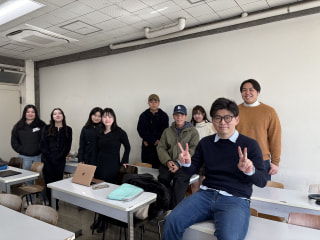
-
2024
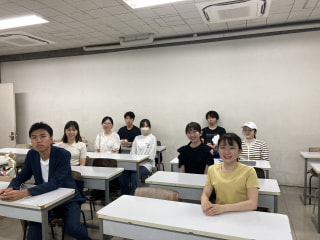
-
2023
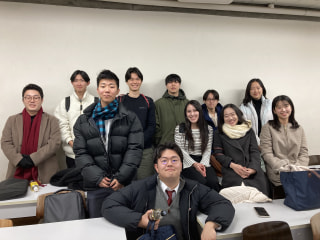
今学期は、ゲストスピーカーをお招きし、アルジェリアとウズベキスタンの教育について、お話を伺うことができました。各自のプロジェクトでは、アメリカ、ノルウェー、アフガニスタン、パキスタン、ドイツ、フランス、中国、韓国、日本、と様々な地域に焦点を当てました。
We have been able to invite guest speakers this semester and learn about education in Algeria and Uzbekistan. Each student conducted a mini-research project (individually and in groups) focusing on the area that she/he is interested in including the United States, Norway, Afghanistan, Pakistan, Germany, France, China, South Korea, and Japan.
国際化のなかで育ちゆく子どもたち/International Perspectives on Childhood
- 国際化の中、各国・各文化で、どのように子どもたちは育ち、どのように育てられているのか。文化人類学・比較教育学・社会学・文化心理学・発達心理学などの学問領域の研究を取り上げ、多方面から子どもの育ちへの理解を深めていきます。メンバー1人1人、疑問点を設定し、研究プロジェクトを進めています。
- This seminar aims to explore cultural variations in how children are growing up, being reared, and educated in an era of globalization and internationalization. We look at childhood, parenting, and early childhood education from various disciplinary perspectives including anthropology, comparative education, sociology, cultural psychology, and developmental psychology. The seminar member conduct their own research projects (individually or in groups) according to their interest.
-
2024
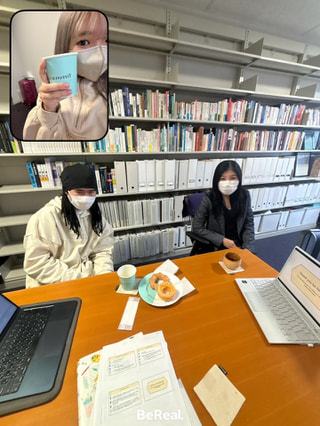
-
2023
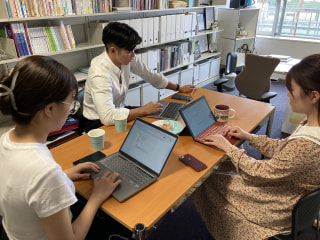
今年度は少人数となりました。ウィズコロナ・アフターコロナの社会の動きに伴い、少し外に出てフィールドワークを実施できたらと思っています。
We have a small group this year. We’ll try to do something new, such as fieldwork together. -
2022
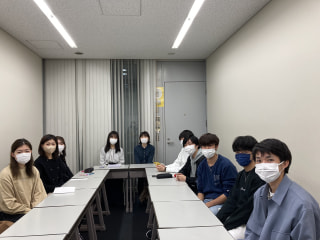
2年ぶりに対面授業再開です。オンラインの活用から学んだことを取り入れつつ、同じ空間にいての生ディスカッションに力を入れていきます。
Face to face classes are back for the first time since 2019. We won't be forgetting the new skills we have learned from online classes during the last two years, but we are thrilled to be able to have lively discussions together in the same space and same time.
質的研究法/Qualitative Research Methods
- この授業では、インタビュー、観察、エスノグラフィ、ナラティブ研究、事例研究など、様々な質的研究法を紹介します。それらの研究法を試し、自分の研究テーマ・興味に合う質的研究法は何かを考え、その技法を身につけることを目標としています。学期末には、授業で学んだ質的研究法の1つを用い、各自が実際に調査を行います。
- This course aims to develop students’ understanding of different qualitative research methods. The qualitative research methods we deal with include interviewing, observation, ethnography, narrative inquiry, and case study. Time in each class session give students the opportunity to practice using a variety of social science research methods. At the end of the semester, students conduct their own project using one of the qualitative research methods that we learn in this course.
